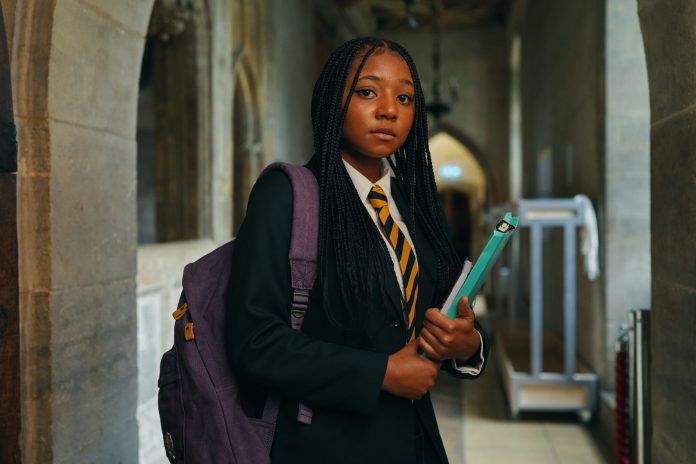Alex Gillham, Leicester Socialist Party
Channel 4’s one-off drama ‘Consent’ is something of an extended public service announcement about ‘rape culture’ and sexual harassment in UK schools and colleges. While lacking subtlety, it is an important reminder of how power can play a crucial role in silencing victims.
Set in a fictional private sixth form, Consent follows privileged student Archie (Tom Victor), who is harbouring a crush on his twin sister’s best friend Natalie (Lashay Anderson).
Natalie, a scholarship student at the school, opens the drama addressing a school assembly with the reminder that only 7% of the UK is privately educated. She catches Archie filming her speech, who stops with a smirk after a pointed look.
During Archie’s 18th birthday party, Archie and Natalie catch each other’s eyes in between downing shots and snorting lines – a night that ends with a grave non-consensual assault on the passed-out Natalie.
Much of the show is concerned with the content of the ‘Sluts & Stuff’ group chat between Archie and his fellow male students, where they discuss the growing crush between Archie and Natalie and the fallout after the party. Instead of text on screen, the boys’ WhatsApp chat is acted out by the boys themselves (complete with spoken emojis).
While stagey, it is a powerful device used to depict the issues of objectification of women, peer pressure and, of course, blasé attitudes towards consent.
The ‘banter’ of the group chat brings to mind the Warwick University ‘rape chat’ scandal in 2019, when leaked screenshots revealed how ‘locker room talk’ is elevated to shocking levels within the confines of a digital space.
The show also depicts the power-play between middle-class Archie, a promising student bound for Oxbridge, and working-class Natalie, to silence her story. Archie’s family immediately hires a lawyer to put together a statement and threatens to sue the school, whereas Natalie remains voiceless and powerless with no evidence of the assault.
The depiction of the school’s negligent response to the incident – the headmaster promises discretion to Archie’s family and hands the boy a leaflet for Alcoholics Anonymous – is also a depressing reminder of how educational institutions, particularly private schools, contribute to the power structures that discourage victims of sexual assault to even bother speaking out.
While the show touches on a range of topics (Emma Davis-Edwards’ script squeezes in revenge porn, easy access to pornography and homophobia in a breathless 50-minute run), some of the characters can feel like caricatures, especially Archie’s friend Raffa, whose attitude towards women borders on demonic.
However, despite this lack of nuance, the show ends with shocking statistics from an Ofsted report on an endemic rape culture in UK schools which sounds the alarm for the creeping increase in misogyny in an era of Andrew Tate, obsessive hatred of figures like Meghan Markle (who gets a name-drop on the show) and online ‘incel’ groups.
Consent is an essential watch for today’s teenagers. The young cast is excellent, it speaks to its subjects on their level and avoids melodrama.







